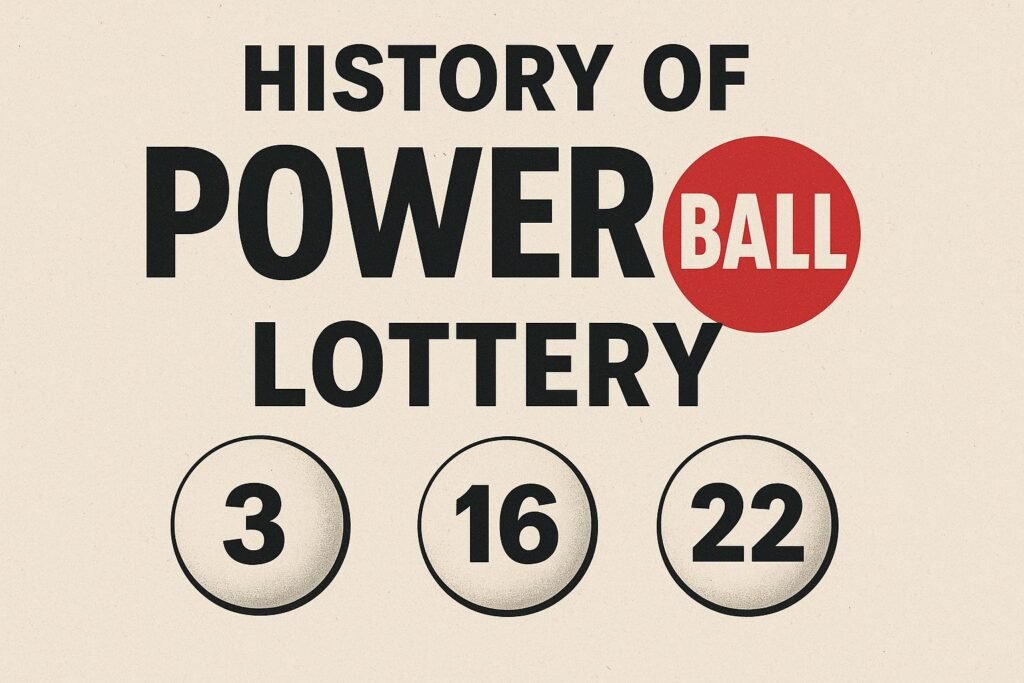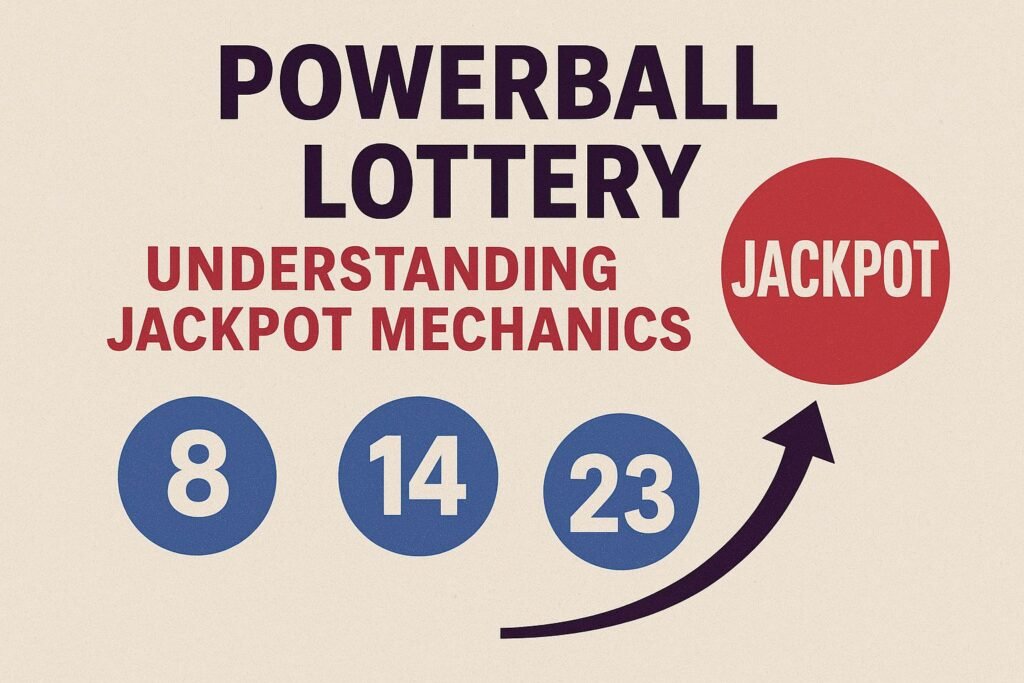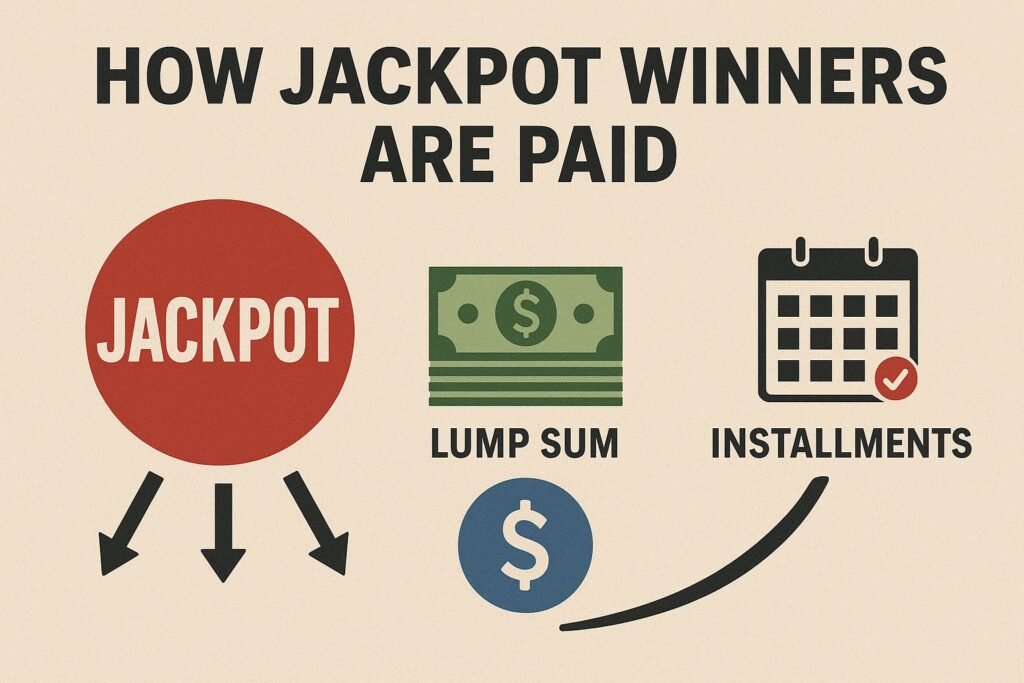Introduction to Powerball
There are few things in life that stir the imagination quite like the idea of winning the Powerball jackpot. Every time the prize rolls over and climbs into the hundreds of millions—or even billions—people across America rush to buy tickets. It’s not just about money; it’s about hope, dreams, and the chance to turn an ordinary life into something extraordinary overnight.
History of Powerball Lottery
Powerball’s story began in 1992, replacing Lotto America. Initially available in only a handful of states, it quickly expanded as more states recognized its popularity. Today, it’s one of the biggest lotteries in the world, spanning 45 U.S. states, Washington D.C., Puerto Rico, and the U.S. Virgin Islands.
The game revolutionized lotteries by introducing two drum draws—one for the white balls and another for the red Powerball. This design made jackpots harder to win but also allowed prize pools to skyrocket.

How Powerball Works
Playing Powerball is simple:
- A ticket costs $2.
- Players select five numbers from 1 to 69 (white balls) and one number from 1 to 26 (the red Powerball).
- The draw occurs on a tri-weekly schedule, taking place on Monday, Wednesday, and Saturday nights.
The jackpot is awarded to any player matching all six numbers drawn.
But even smaller matches bring cash prizes ranging from $4 to $1 million (or more with the Power Play multiplier).
Understanding Jackpot Mechanics
The Powerball jackpot starts at $20 million and grows every time no one wins. The rollover feature facilitates exponential jackpot growth, often resulting in nine-figure prizes. Every time the jackpot goes unclaimed, the frenzy builds, and ticket sales skyrocket.
It’s this rollover feature that has given birth to record-breaking billion-dollar jackpots.

Biggest Powerball Jackpots in History
- $2.04 Billion (Nov 2022): Won by a single ticket in California—the largest lottery jackpot ever.
- $1.586 Billion (Jan 2016): Shared by winners in California, Florida, and Tennessee.
- $768.4 Million (Mar 2019): Won by a Wisconsin man, one of the largest single-ticket wins.
Each record jackpot becomes a global news event, sparking discussions about what people would do if they suddenly became billionaires.
The Odds of Winning Powerball
The probability of a single ticket winning the jackpot is 1 in 292.2 million. You’re more likely to be struck by lightning, bitten by a shark, or become an astronaut.
The real appeal for many players are the frequent smaller wins. With overall odds of 1 in 24.9, you have a great chance to win something, even if it’s the $4 prize for matching the Powerball.

Where the Money Comes From
The jackpot is funded primarily by ticket sales. A portion goes to the prize pool, while the rest supports state programs such as education, infrastructure, and public safety. In many states, lottery contributions are vital for school funding.
How Jackpot Winners are Paid
Winners can choose between:
- Annuity Option: Receive your winnings in 30 graduated annual payments spread out over 29 years.
- Lump Sum: A single, immediate payment equivalent to the present cash value of the jackpot, which is typically approximately 60% of the advertised annuity value.
Taxes also play a major role. Federal taxes take 24% upfront, while state taxes vary depending on where the ticket was bought. A billion-dollar jackpot might shrink significantly once Uncle Sam takes his share.

Stories of Famous Powerball Winners
Powerball has created overnight celebrities:
- Three lucky winners emerged to share the monumental billion-dollar prize in 2016.
- In 2022, the California winner of $2.04 billion kept a low profile but instantly became one of the richest people in the state.
- Countless office pools and syndicates have also struck gold, showing that teamwork sometimes pays off.
What Winners Usually Do With Their Money
Some winners buy yachts, mansions, and luxury cars. Others invest wisely, setting up businesses or trust funds. Many also donate millions to charities, hospitals, and educational programs.
Still, not all stories end well. A significant number of winners encounter challenges such as familial conflicts, financial mismanagement, and the phenomenon often referred to as the “lottery curse.”
Psychological Impact of Winning
Winning sounds like a dream, but sudden wealth can be overwhelming. Psychologists note that winners often face:
- Stress from new responsibilities
- Strained relationships with friends and family
- Anxiety about managing wealth
While money solves many problems, it also creates new ones—especially when it arrives overnight.
Common Myths About Powerball
- “Buying more tickets guarantees a win” – It improves chances slightly but doesn’t change astronomical odds.
- The belief in “lucky” numbers is a myth; randomness ensures every combination is equally likely.
- “Quick picks never win” – In reality, most big winners used quick picks.
Economic and Social Impact of Powerball
The Powerball lottery operates as a powerful financial mechanism, stimulating economic activity at multiple levels.
It raises billions for state programs and generates jobs in retail, advertising, and tourism. However, critics argue that lotteries disproportionately target lower-income players, raising ethical debates.
Strategies and Tips for Playing Powerball
While there’s no magic formula to win, here are some tips:
- Play responsibly—set a budget.
- Join a syndicate—pooling money increases odds.
- Don’t chase losses—lotteries should be fun, not stressful.
Think of it as entertainment with a small chance of life-changing rewards.
Powerball in Popular Culture
From late-night TV jokes to Hollywood movies, Powerball jackpots often become cultural moments. News anchors ask, “What would you do if you won?” while social media floods with memes and wish lists.
It has become more than a lottery—it’s a shared fantasy that unites millions.
The Future of Powerball Lottery
As technology evolves, so does Powerball. Many states now allow online ticket purchases, and international platforms are exploring ways to let non-U.S. residents play legally. The future may include larger jackpots, innovative game formats, and global participation.
Conclusion
The Powerball jackpot is not just about money—it’s about possibility. It represents the ultimate dream, the hope that life can change in an instant. While the odds are slim, millions continue to play, proving that the dream itself is worth the $2 ticket.
Whether you win or not, Powerball remains a cultural phenomenon that will continue shaping dreams for generations.
FAQs
1. What days are Powerball draws held?
Draws are held every Monday, Wednesday, and Saturday night.
2. What is the largest Powerball jackpot ever?
The record is $2.04 billion, won in November 2022.
3. Can non-U.S. residents play Powerball?
Yes, but only if they purchase tickets from licensed U.S. retailers or legal online services.
4. How long do winners have to claim their prize?
It varies by state, but generally between 90 days and one year.
5. Do Powerball winnings affect taxes significantly?
Absolutely. Federal and state taxes can cut the prize by nearly half, especially for lump-sum winners.








